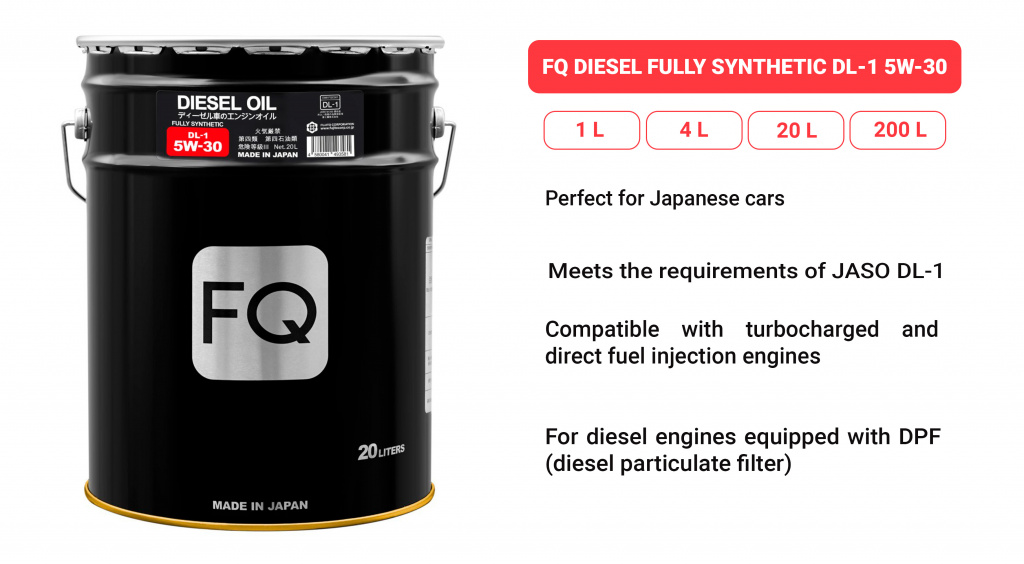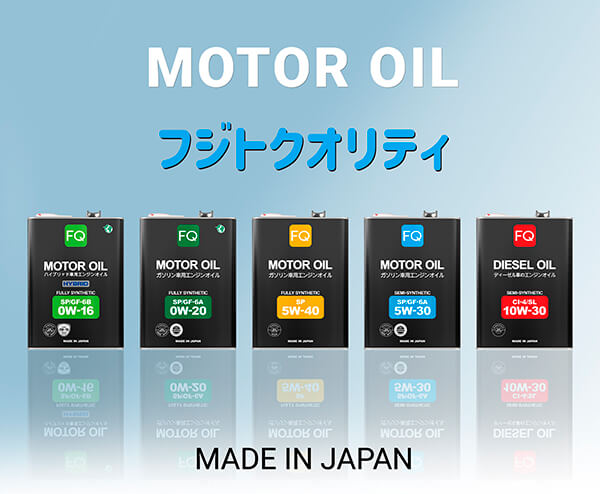
Engine oil for diesel engine
In this article, we will look at various types of diesel oils from the Japanese brand FQ and explain why it is impossible to use gasoline engine oil in diesel engines.
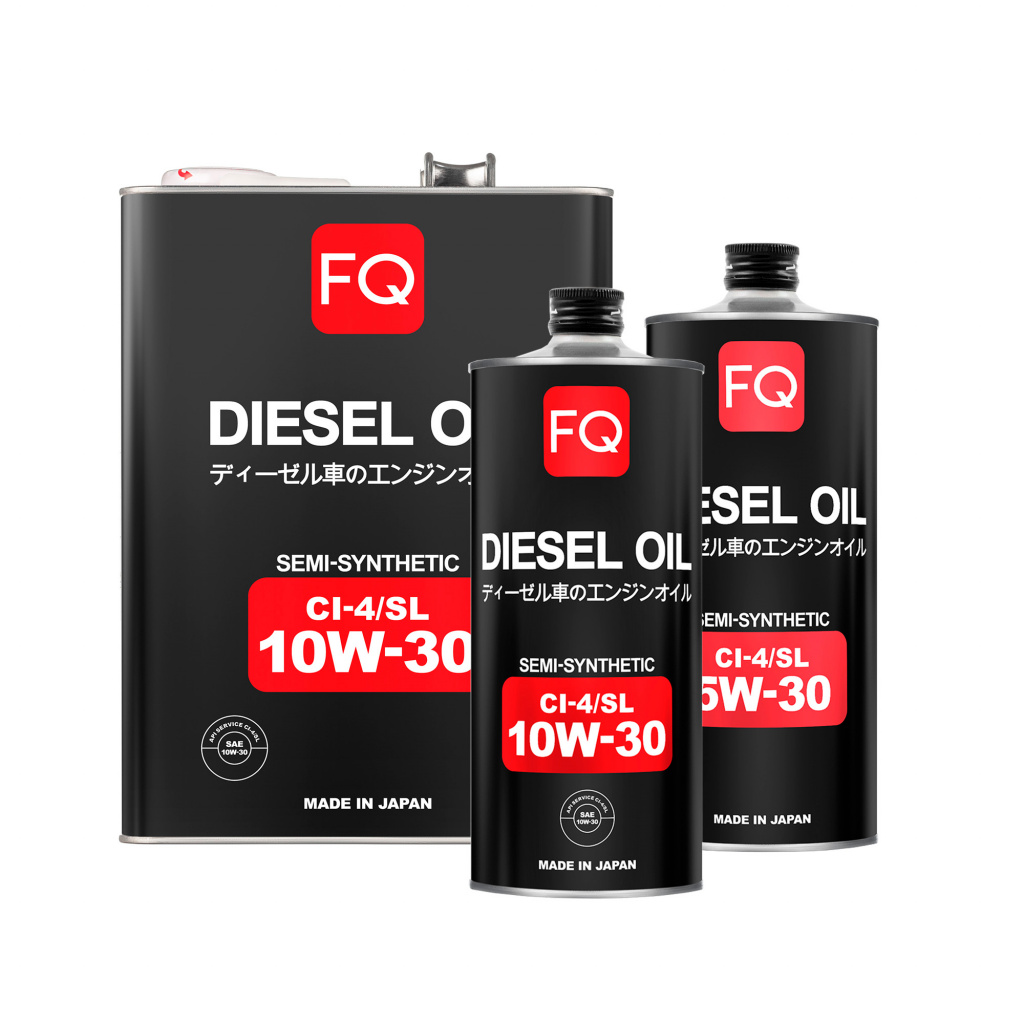
Diesel oil has a number of features. Diesel engines operate at higher temperatures and on a depleted fuel-air mixture. Fuel injection, mixing and combustion are faster, which leads to the formation of large amounts of soot and sulfur in the exhaust gases. These combustion products enter the crankcase, where they can cause rapid oxidation inside the engine. Moreover, the engine compartment ventilation system does not always cope with so many impurities, which can lead to problems with the engine.
In this regard, diesel oil should have 2 main properties:
1. Increased washing capacity
2. High resistance to oxidation processes
Therefore, diesel engine oils contain a large amount of alkaline additives that prevent the formation of carbon deposits. In addition, gasoline engines usually run at higher speeds than diesel engines. To work at high speeds, oils with other types of additives are required, which are not present in diesel oils, but are present in gasoline.
In fact, lubricants for both diesel engines have the same base, but differ in a set of additives.
Universal oils that are suitable for all types of engines have also become common in the lubricants market. They contain a set of additives for both high RPM and cleaning, so they can be used in different types of engines. However, such oils will not always be the best option. Firstly, a more complex formula and more additives make it more expensive. Secondly, such an oil is less suitable for severe operating conditions, as it is a compromise between different properties. However, such lubricants are convenient for car dealers and corporate garages, as it can be used for all cars.
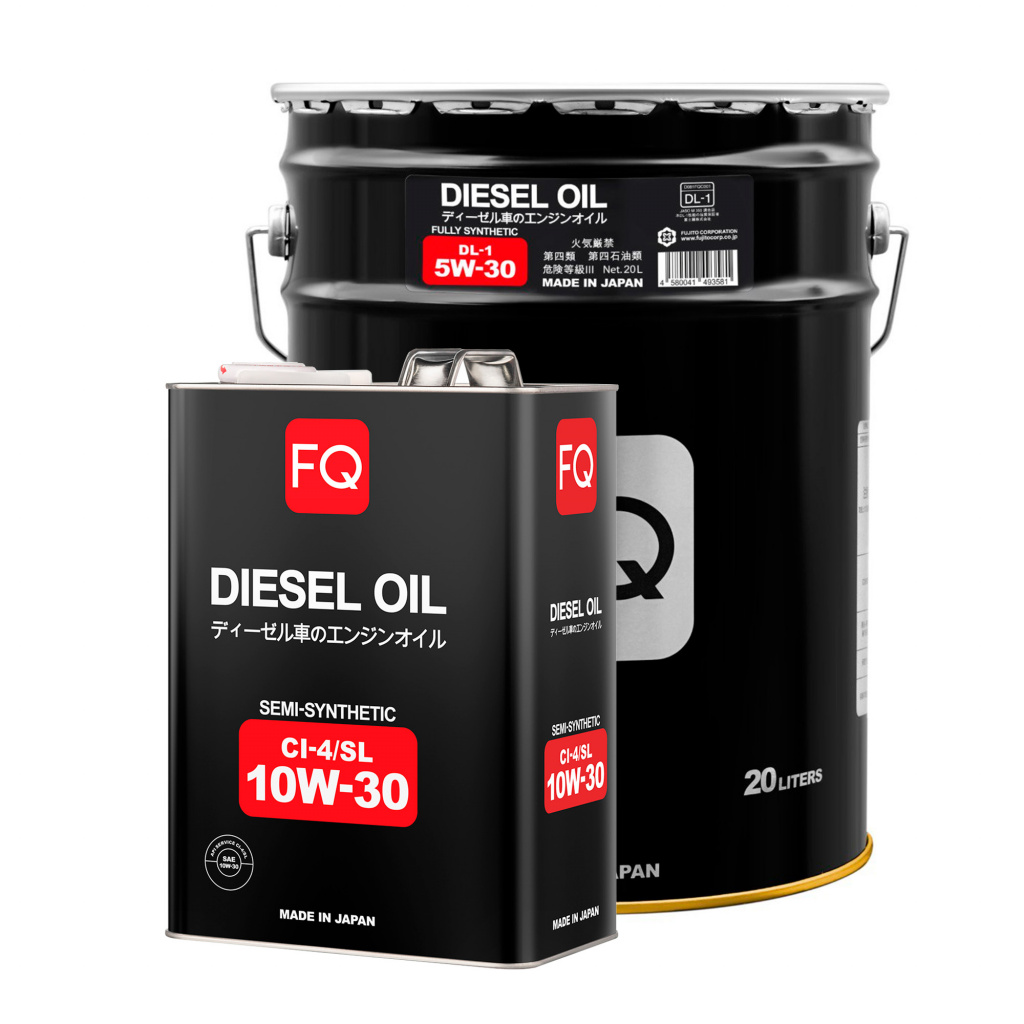
How to choose the oil?
When choosing an oil, it is worth paying attention to the type of oil and its classification.
Type
Engine oil is divided into 3 types: mineral, semi-synthetic and fully synthetic. Mineral oil consists entirely of natural ingredients and is produced by refining and refining petroleum products. However, such mixtures are not resistant to high temperatures, so they can only be used if they meet the manufacturer's requirements in terms of quality and viscosity. The mineral oil in the diesel engine should be changed every 4-5 thousand km.
Semi-synthetic engine oil copes more effectively with frequent overheating compared to mineral oil, but is more quickly contaminated by soot and combustion products than a fully synthetic analog. Therefore, it is recommended to make a replacement every 7,000 kilometers.
The FQ brand offers diesel semi-synthetic oils with SAE 5W-30 and 10W-30 in containers of 1,4,20 and 200 liters. As well as 10w-40 and 15w-40 in containers of 20 and 200 liters.

Synthetic oil is an ideal choice for diesel engines because it is highly resistant to oxidative processes in the working area and effectively protects the turbine and the engine itself from overheating. It also quickly cleans the mechanisms from dirt and deposits by creating a durable protective film. However, synthetic oil is more expensive than semi-synthetic oil. It should be changed every 10,000 kilometers.
The range of the FQ brand includes synthetic oils with SAE 5W-30, 10W-30, and 10W-40 in containers of 20 and 200 liters.
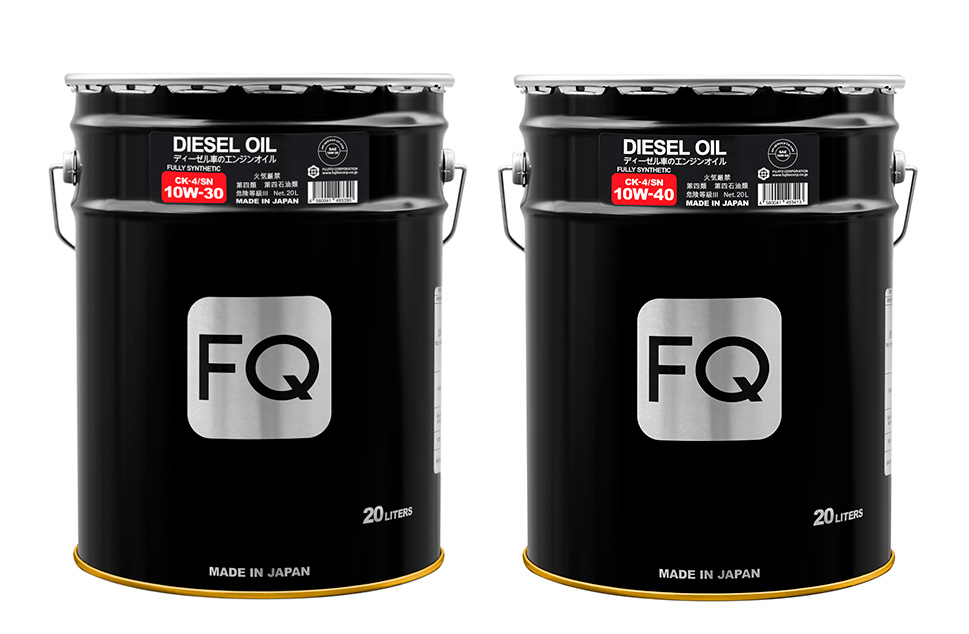
Classification
Diesel oil should be low-ash. According to this criterion, it falls under two generally accepted classifications API and ACEA. In the API system, diesel engine oils are marked with the letter "C".
Diesel oils of the FQ brand are presented in classes CI-4 and CK-4
According to the ACEA classification, full-ash diesel oils belong to class B (B3, B4, B5), and medium and low-salt diesel oils according to ACEA are marked with classification C (C2, C3, C4, C5).
In addition, the relatively new classification of JASO should be mentioned. The Japanese Automotive Standards Organization (JASO) decided to create its own system of standardization of motor oils for Japanese-made engines, since none of the existing classification systems for motor oils could meet the growing quality requirements for lubricants for Japanese-made engines, as well as taking into account the constantly tightening requirements of environmentalists regarding the reduction of exhaust toxicity.
Why should Japanese car owners pay attention to the JASO class?
1. Increased wear of parts.
The wear of diesel valve gear parts can be significantly increased when using oils with a high content of dispersants, especially in API CG-4 oils.;
2. Deposits on pistons;
In modern Japanese engines, the upper piston ring is usually located lower than in European engines, which causes high-temperature deposits.
3. The spread of Japanese engines with EGR (Exhaust Gas Recirculation) system.
It burns the remaining fuel in the exhaust gases, which increases the acidity inside the engine and can cause corrosion.
Therefore, when you buy lubricants marked according to the JASO classification, you can be sure that this oil is suitable for your Japanese car.
The FQ brand has just prepared a novelty that corresponds to this classification – FQ DIESEL DL-1 5W-30 FULLY SYNTHETIC engine oil, which you can buy in any convenient container (1,4,20 and 200 liters). The DL-1 is excellent for passenger cars operating under light and medium loads, equipped with exhaust gas purification systems such as a diesel particulate filter (DPF) and a catalyst.
